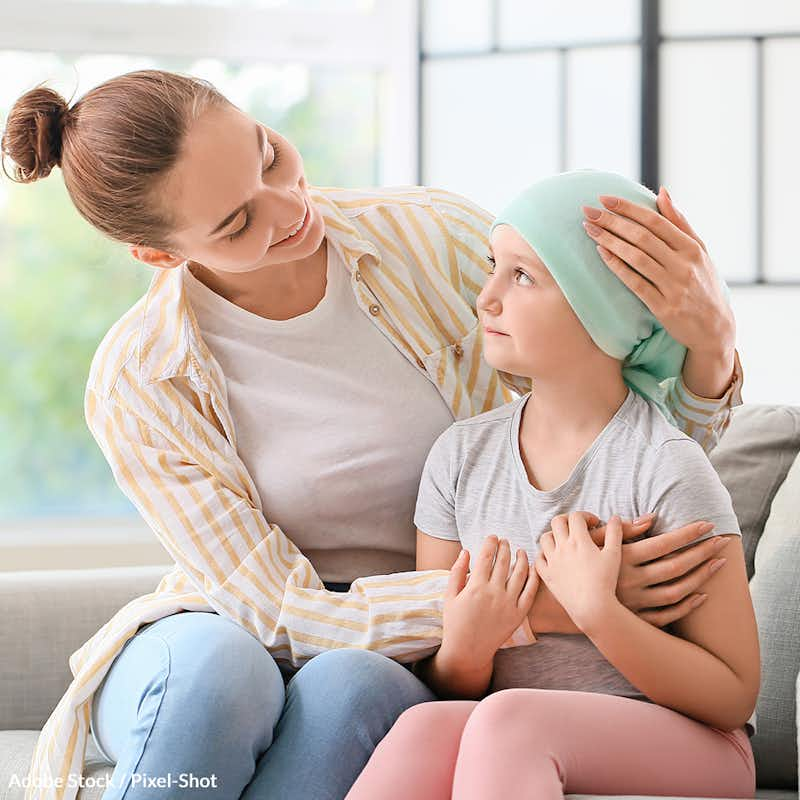Increase Childhood Cancer Research
18,109 signatures toward our 30,000 Goal
Sponsor: The Breast Cancer Site
Children living with cancer face great physical, social, and psychological challenges. They need our support!

Childhood cancer is the leading cause of death by disease past infancy among children in the United States1.
It is estimated that more than 10,470 children in the United States under the age of 15 will be diagnosed with cancer this year, a number that has been rising for the past few decades2.
Children living with cancer often face great physical, social, psychological, and spiritual challenges, just to enjoy daily life3. Childhood cancer patients and their families experience overwhelming moments of aggression, anxiety, depression, and communicational problems4. Moreover, they must do it all while going through an often cold and uncomfortable treatment process, treatment complications, and many other care related problems.
The parents of children with cancer can experience shock or denial, and live with debilitating pressure as the disease leaves its stain on every aspect of family dynamic. This leads to a lower quality of life, more frequent hospital visits, overwhelming medical bills, and the constant fear that time is running out or that a relapse could occur5.
Children who live with cancer may fall years behind in school, and when given the opportunity to catch up, can be challenged by "chemo brain," attentional and memory problems, hearing loss, and other physical issues related to disease6.
Currently, only 4% of the U.S. federal government's funding for cancer research is allocated to childhood cancer7. This is a meager stream of support, and forces public healthcare institutions to put important studies on hold when funding is not available, sometimes having to wait until September, when donations come in for Childhood Cancer Awareness month.
Sign the petition and help us ask the federal government to increase budgetary allocation toward childhood cancer and enable researchers to diagnose cancer earlier, improve treatments and shorten the time spent in them, and save children's lives!
- National Cancer Institute (4 November 2021), "Cancer in Children and Adolescents."
- The American Cancer Society (12 January 2022), "Key Statistics for Childhood Cancers."
- Negar Reisi-Dehkordi, Hajar Baratian and Ali Zargham-Boroujeni, Iranian Journal of Nursing and Midwifery Research (July-August 2014), "Challenges of children with cancer and their mothers: A qualitative research."
- Katarzyna Woźniak and Dariusz Iżycki, National Library Of Medicine (September 2014), "Cancer: a family at risk."
- Erin M. Rodriguez, Madeleine J. Dunn, Teddi Zuckerman, Kathryn Vannatta, Cynthia A. Gerhardt, and Bruce E. Compas, Journal of Pediatric Psychology (March 2012), "Cancer-Related Sources of Stress for Children With Cancer and Their Parents."
- Managing School During and After Cancer, Cancer.Net (June 2019), "Managing School During and After Cancer."
- Alex's Lemonade Stand Foundation for Childhood Cancer (2021), "Childhood Cancer Facts: By the Numbers."
The Petition:
To the National Cancer Institute and Office of Budget and Finance, Department of Health and Human Services, and National Institutes of Health,
This year, more than 10,470 children in the United States under the age of 15 will be diagnosed with cancer, a number that has been rising for the past few decades.
Childhood cancer is the leading cause of death by disease past infancy among children in the United States.
Children living with cancer often face great physical, social, psychological, and spiritual challenges, just to enjoy daily life. They face missed days or even weeks of school. Their families experience overwhelming moments of aggression, anxiety, depression, and communicational problems. Moreover, they must do it all while going through an often cold and uncomfortable treatment process, treatment complications, and many other care related problems.
Currently, only 4% of the U.S. federal government's funding for cancer research is allocated to childhood cancer. This is hardly enough to ensure important research projects are being funded, let alone funded year-round so they can make the most impact.
Families of children with cancer shouldn't be forced into poverty while living in fear of losing their child. Extra funding for childhood cancer research will help improve treatments and detect cancer earlier, saving countless lives in the coming years.
I implore you, for the sake of American children and their families, to increase government funding for childhood cancer research to 8% of the total cancer research funding allocation.
Sincerely,